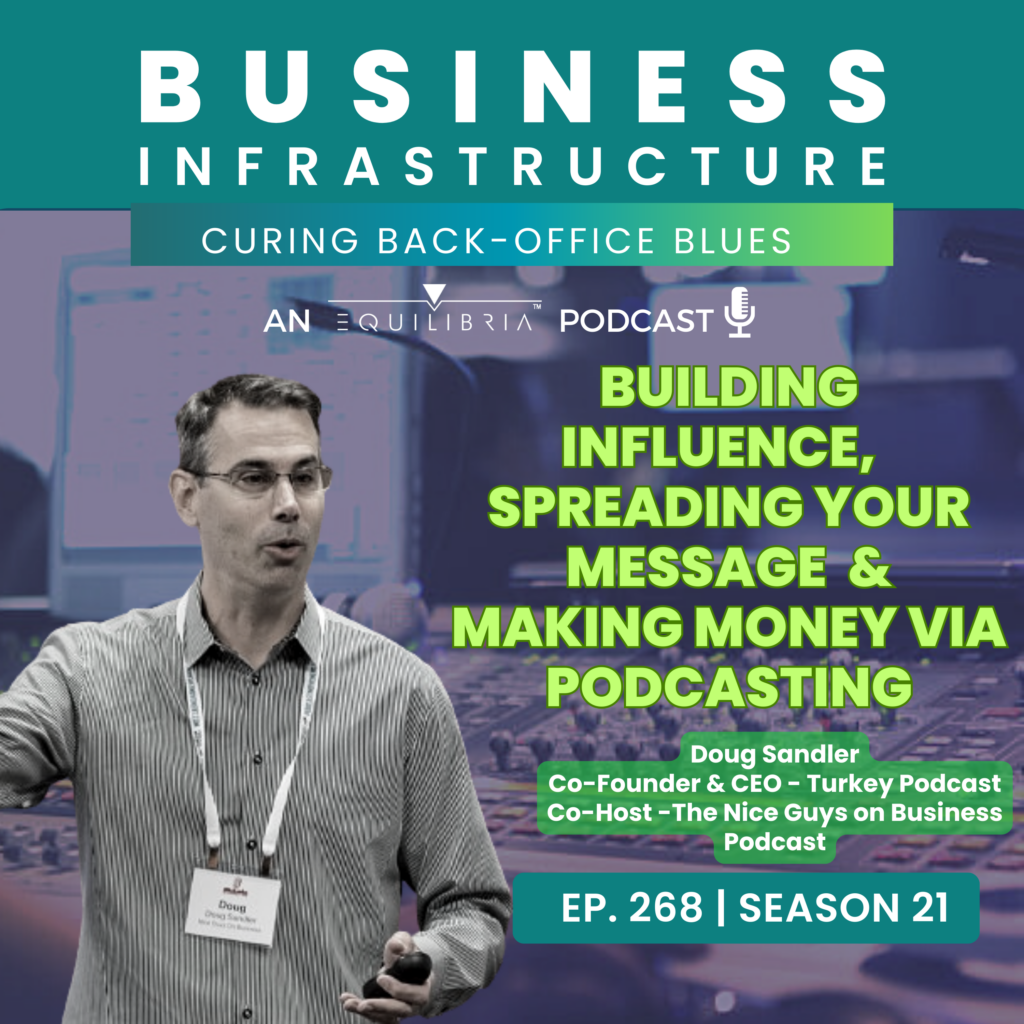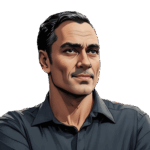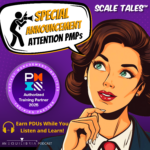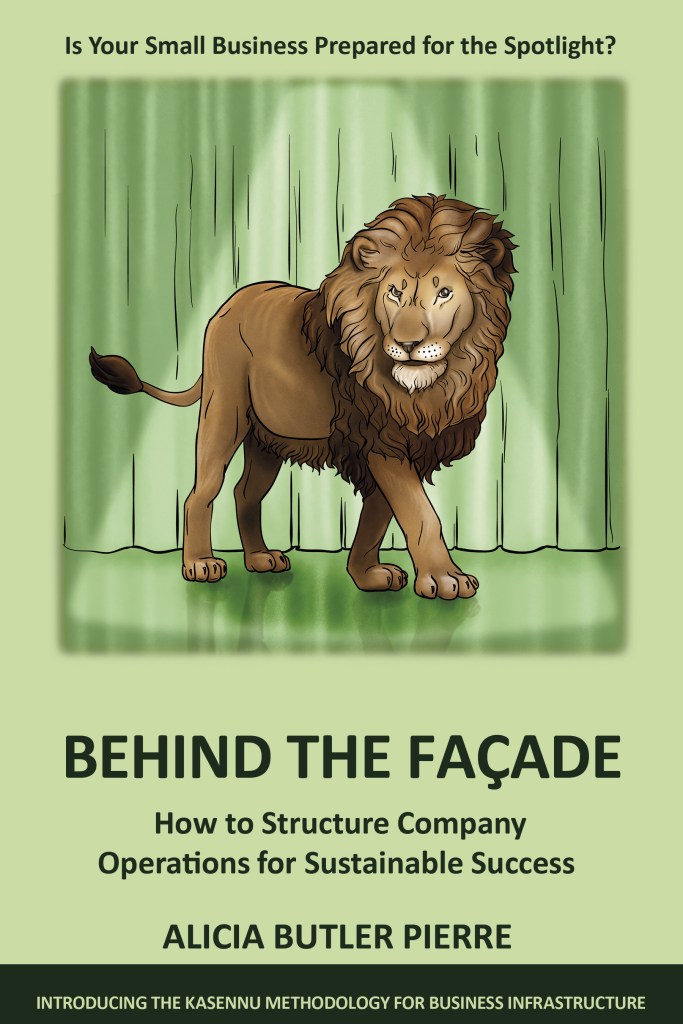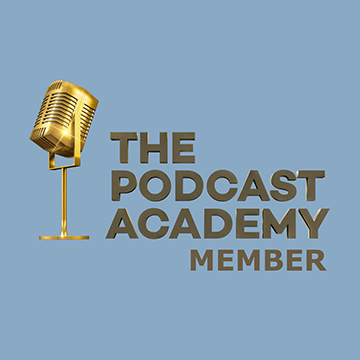Transcript
This podcast is brought to you by Equilibria, Inc. We design business infrastructure that frees you from the chaos of fast growth, scales your operations, and increases the value of your small business.

Hi! Welcome back! Let’s head on over to the podcasting vault. We have another good, remastered interview waiting for you to listen to. Go ahead and take a seat and get comfortable. This interview is about, well, podcasting! And I promise you – you’re going to learn some things about this new media that can take your business to the next level.
This is Season 21 of the Business Infrastructure podcast. On this show we share operational tips, strategies, and tactics to help you cure any back-office blues you might be experiencing. I’m Alicia Butler Pierre and this season we’ve remastered some of our most popular episodes using our show’s new format.
During the pandemic, the number of podcasts that people started skyrocketed. But just as quickly as they started, many of those new podcasts also stopped. There’s many reasons why, but a major one has to do with the lack of understanding of their audience and their reason for podcasting in the first place. If you’ve ever been curious about what it takes to build a successful podcast, then you’ll enjoy listening to this podcasting O.G.!
This is Episode 268 – Building Influence, Spreading Your Message and Making Money via Podcasting with Doug Sandler
Doug Sandler is a former DJ, serial entrepreneur, sales expert, bestselling author and the co-host of the wildly successful Nice Guys on Business podcast. That podcast has over 1,400 episodes and over 3 million downloads. When this interview originally aired, this show, the Business Infrastructure podcast, was in its infancy and Doug was my podcasting coach. Knowing how busy he is, it was such an honor to have him be a guest on the show especially at a time when we largely didn’t know what the heck we were doing. We started our conversation the usual way things start on this show – by asking how he’s doing.
Alicia, I’m doing great! This is like the best thing ever. I get to watch one of my students. Your head’s probably exploding thinking, I better not screw anything up.
That’s exactly what I’m thinking!

Well, thank you for having me on the show. I’m excited to be here, Alicia.
I’m sure you can already tell that Doug is a ball of energy! His passion and enthusiasm for podcasting runs deep so it’s no wonder he’s also the co-owner of a podcast production company called Turnkey Podcasts. Not bad for a person who never intended to become a podcasting guru.
The funny thing about the podcast production business, Turnkey, I had never expected to even get into the business. I reinvented my career about six or seven years ago with the idea that I was going to turn it into a professional speaking business. And I wrote a book, and I started the podcast to promote the book and my speaking business and my online training. And ultimately what happened was I had so many people that came out to say, “Hey, can you help me build a show like your show?” that I figured it would be much easier for me to make money from my pajamas sitting at my computer screen doing Zoom calls rather than traveling across the country for the same amount of money. So, it made sense to me to make that transition from my speaking career to my podcast business, which has been great for the last several years.
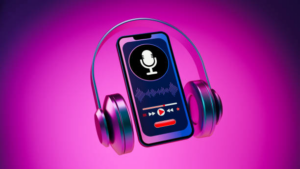
Have you ever been curious about what it takes to start a podcast and how it can serve as an additional source of revenue? As you’ll hear from Doug, you first need to know your why or purpose for podcasting. Check out what Doug has to say.
I think people get into podcasting for one of three reasons. If my experience lends true here, I think they get into it to build influence, to build a community, or to make money. And I think that before you even think about pulling the trigger on launching a show, you really have to come up with what is your goal. Is it to build community? Is it to build influence, or is it to make money? Because I find that too many people look back a year after they’ve launched their show, they’re now fully into production, they’re
really cranking on episodes, and they’re not making any money.
And I say, “Well, I’m looking back at your guest list and I’m looking at your goals for your show. You say you want to make money, but you’re only doing it to build influence because that’s who you’ve aligned yourself with on your show.” So, understanding why you’re getting into the podcasting space before you get started, it doesn’t mean you can’t pivot once you’re in it. But know that to be successful at any of those three things, community, influence, or money, you need to go at it with the approach and the
strategy that’s going to help you go down that path.
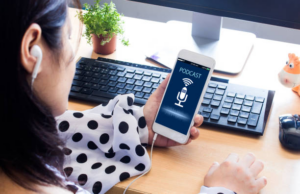
And trust me, I know this from experience! The goal of this very podcast has shifted from when we first started in 2018. A huge reason for that shift is, well, because of you, our listener. You see when we started, we didn’t know who was listening. But now that we do have a much better idea of whose listening, we’ve fine-tuned our strategy. That took about three years for us to really figure that out. Rest assured, podcasting is a viable business model, but you have to be in it for the long game because listeners are largely anonymous unless they leave comments and reach out to the host.
Agreed. And the other thing is, you sometimes don’t even know what they want. If you’re selling products and services to your community and you come on board with the idea of, This is what I’m going to provide to my community, oftentimes you’re sadly mistaken that that’s not the right thing. I was trying to put out to my community that I want to sell my speaking services and my book and my online training program, which were all around the worlds of customer service and sales.
Little did I know that my community actually wanted me to sell them podcast production business, which was not even on my radar screen when I started to podcast. It took nearly two years to figure that out. And making no money for that almost two-year period of time until we figured out that we really did want. And you know this from your experience in the podcasting spaces – many people will give up long before that point had they not seen any positive results from their show.
Yep, that’s true. In the podcasting industry we refer to this rapid dropout rate as podfade. People give up before they figure out who their listeners are and what they really want. Again, it’s a long game. So, how did Doug and his co-host and business partner, Strickland, figure out who their listeners were and what they wanted?
Well, people get into podcasting many times and they think, Hey, this is great! It’s going to give me the opportunity to kind of broadcast my message. And it’s not really broadcast. It’s really a multicast. Let’s call it in and out. It should be information going out in terms of information you’re providing to your community. But unless you’re engaging through social media and through email campaigns and responding to them and when you’re meeting people that are in your community out in public, you’ve
got to listen to what they want. They are telling you; they are screaming at you what they want. And for me to keep leaning into, I do keynote speeches, I do keynote speeches, I do keynote speeches. And not getting any response from that.
Really what it comes down to is, well, what do you want? What are you hoping to get from us? And we found out that it really was not about those things at all. It was totally about podcast production. And the discovery process was very telling for us. It really helped us understand that people get into it for influence, community and making money. And when we started to figure that out from almost that minute that we turned the switch, we were making money. I mean, literally I can remember the day that
I had a conversation with my partner and cohost of our show, The Nice Guys on Business. And we were talking and having this conversation. The minute that we made that decision, that following month, we probably went from zero to $20,000. And we haven’t looked back since.
Now that’s impressive! But I was still curious – once Doug figured out who his listeners were and the message they really wanted to hear, how did he know what to offer them?

Well, you got to keep in mind as you’re building your show and building your community. It is a lot of trial and error, but you have to be patient with it, above and beyond everything else, you have to be consistent! If you’re putting out a weekly podcast, put it out weekly. If your community is used to having you on Tuesday at 7:00 am, they’re waiting for it and for you to think, Well, I only have a couple of hundred downloads, nobody’s really listening, I don’t have a lot of audience. That’s B.S.
And just to prove its B.S., pay close attention to what Doug has to say about podcast download numbers.
I mean, you could have a micro niche and you could specifically be a brain surgeon that has a podcast on brain surgery and you’re not going to get the same following or the same download count as a guy that’s in general business, that’s getting thousands or tens of thousands of downloads. So, it’s not just about the download count. It’s all about your community and what they’re looking for and what they want. It’s two ways. You’ve got to make sure that you’re listening to what they want.
And in the beginning, it’s patience, its consistency, it’s trial and error, it’s asking a lot of questions and that’s really the most time-consuming part. It’s not the recording of your episode or the editing or the distribution. It really is talking to your community, getting to know who they are, getting to know many of them, even a handful of them by first name. When you know a handful of your community by first name, I would tell you that you’re on the successful path to finding out what your community wants.
And once you know what your community wants, you’re in a prime position to build a foundation to scale your show and its impact via business infrastructure. Since business infrastructure is a system for linking people, processes, and tools, I asked Doug if he could spend some time discussing each of these elements when setting up and maintaining a podcast.
That’s a really good question. I think what it comes down to really is what are you most comfortable with as a podcaster? What’s the stuff that you want to retain on your own and what’s the stuff that you want to build a team around? For me, I really love building relationships and making sales. That was my strength, that was my zone of genius. My partner Strickland, his was all the back ends. So, if we liken this to a restaurant, I was the hostess forward, so I was the front of house manager, and he was the back of the house manager. He was the executive chef on the podcast production business. So, he was doing all the systems, building all the operations, doing all of the production. So, you have to think about what systems that you want to put in place for your podcast.
In the beginning, I would encourage you do everything, if you can, on your own after you launch your show, because you want to see the stuff that you don’t like. You want to see the stuff that you love. Understand that there are multiple systems. You may create an entire system on your own, or you may plug into a system like ours. We have a podcast production system that’s in place, but there are many people that either don’t want to, from an expense perspective, do it that way, or they just like to do it, so
they don’t want to give up that role. I just encourage people to plug into some sort of system or create a system that’s going to handle that entire back end and even the front-end stuff for your show as well.
Now, one thing you said that I think was so key is doing it on your own first. And once you really figure out what the process or system looks like, I think then you’re in an even better position to be able to delegate to other people.
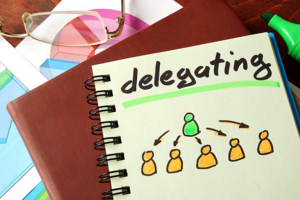
Agreed. And stay in your zone of genius! If you never wanted to get involved with the launch, I would say, don’t stress out over it. Get help. Get either a professional production company or plug into a DIY program that has a system. Why reinvent the wheel on something that’s been invented a million times already? Just plug into somebody that has already created that, or do what you did, which was great. I mean, you created your own system, you created a lot of your own stuff. And then you said, “I know I need some help because this is not the area of my strength.” I think we started working either on the scheduling program or the recording platform. I don’t remember exactly where we started, but it really was you kind of got it as far as you could on your own before you said I need to bring in a pro to help me because I could spend the next several months figuring this out and spend much more money on that than the few dollars that I’m going to spend on coaching to get through this part.
That’s exactly what happened. Like Doug, I’m a strong advocate for doing the work or as much of the work yourself first before you assign it to someone else. This helps you figure out the processes needed. And once you have that in place, it makes it that much easier for an expert to come behind you and show you where you can do things better. Doug, for example, was able to look at many of my podcasting processes and tell me where I could automate many of the steps by using tools like Acuity Scheduling.
It’s amazing the automated systems that are available to us nowadays I think your Acuity subscription is probably about $20 or $25 a month, if that, and it saves you literally hours and hours and hours of time every month from collecting information, confirming appointments, and the initial follow up. And all of that stuff is just completely done away with because it’s automated through Acuity.
Can you talk just a little bit about the amount of time that you can put in coming up with your initial process? So even when using a tool like Acuity Scheduling, I literally set aside an entire day just to get everything set up. Is that the norm?
Well, I think you’re a very unique individual, Alicia. I think what ends up happening is a lot of people give up before they say, “Hey, I’m going to spend an entire day doing this.” And what they do is they’ll hire a company like me and spend a few hundred dollars coaching call and they’ll just say, “Hey, can you do this for me?” And we have a back-end system that, yes, we could set it up. We have a client right now that’s very hands off with everything. He’s a C-level exec, and he comes to us with, Here’s what I want to do. Can you help me with it? We answer the question, “Yes, we can! Here’s how we do it.” And then he says, “Great, can you do it for me?”

And some people are, What do I need to do? And we tell them, and they say, “Okay, great. Teach me how to do what I need to do so that I can learn it for future stuff.” Because it’s not just setting up one form, as you know it’s going to be setting up the form, and then you’re going to need to set up another one for another show that you’re going to start or another appointment type you have if you’re using the automated schedule as the example. So, he doesn’t want to learn, but he’s got the back end. He’s got the money that he says, I don’t care. I never want to learn this. And you take a different approach. I take the approach that you take. I want to learn it in the beginning. I want somebody to fine tune me, and then I want to come back and learn it the pro way. And you probably could teach me some stuff about Acuity now because you got your hands dirty with it, right?
Yeah.
And that’s the beauty of it. When you start to do that, that’s the real pro for me. You can teach a guy to fish, or you can give him fish. And I’d rather teach somebody how to fish rather than just hand them the fish.
It’s something to think about if you ever want to start a podcast. Do you want a DIY or Do-It-Yourself model or do you prefer guided, personalized coaching or consulting? And even if you have no desire to do podcasting, Doug’s tips still apply for any service you may be considering investing in. Coming up after the break, Doug will share some specific resources he recommends for learning more about podcasting plus he’ll tell us more about Turnkey, his podcast production company.
In the world of business, success isn’t just about great ideas or products. It’s about having a strong foundation—a solid business infrastructure. But why is it so important?
A robust business infrastructure is like the backbone of an organization. It provides the necessary support for all our operations.
Business infrastructure ensures effective communication and collaboration. It allows teams to seamlessly share information, work together efficiently, and make informed decisions.
It also enables efficient data management. With proper systems in place, businesses can securely store, analyze, and utilize their data to gain valuable insights and make strategic decisions.
Thirdly, a strong business infrastructure promotes innovation and growth. It provides the flexibility to scale up operations, adopt new technologies, and adapt to changing market demands. It’s no wonder why a solid business infrastructure is essential for success. It enhances communication, facilitates efficient data management, fosters innovation, and enables flexibility—all vital for businesses to thrive in today’s
competitive landscape. Invest in a strong business infrastructure, and watch your business reach new heights!
At Equilibria, we’re excited to offer a free webinar opportunity where we’ll do a deep dive into business infrastructure. Stop being a victim of unmanageable fast growth and start building your own company’s business infrastructure. Don’t wait! Experience the order and calm that thousands of other small businesses have. Sign up now at SmoothOperator.Club. That’s SmoothOperator.club.
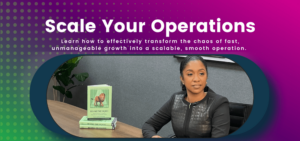
We’re back and before the break, podcasting guru Doug Sandler told us about the three primary things to consider when starting a new podcast and understanding the purpose it will serve – to build influence, grow community, make money, or all of the above. He also began recommending different systems to create and how you can work on those internally or outsource them. I asked Doug if he could share some more resources he
recommends where we can learn more about podcasting.
Sure. Well, I’ll do a pitch for me to begin with. If you want to go to TurnkeyPodcast.com, there’s a whole bunch of articles and blogs that we have either written ourselves or used with some partner companies that support us in the services that we provide. So, you can just go to the blog page on our website. You can also take a deeper dive into the different approaches to why people get into podcasting. If you really take a deep dive into, let’s say, the money side of things, there’s several ways that you can make money. And again, each one of these ways has a system that’s involved whether you do it through sponsorship and advertising on your show, affiliate relationships, donations, selling your services to your community, or using a strategy that I use that we’ve developed an entire system on – it’s turning your guests into clients. So, a number of these systems are in place and those are through TurnkeyPodcast.com again.
But the other stuff that is really cool is the stuff that’s already templated out there for you. Things like a website through some of the simple hosting platforms like Simplecast. There’s an easy way to launch a podcast and have Simplecast do a lot of the backend work through distribution. There are so many ways to distribute your podcast. So, we’re just taking the systems that are already out there, combining them all into one, and saying, hey, here is a service that we offer through concept to launch to get your show
off of the ground in phase one, produce it in phase two and phase three. Now that we have all this together, let’s develop a strategy for really making this an effective use of your time and the tool within the new media space called Podcasting.

Wow! Couldn’t have summarized it better myself.
Hope it didn’t sound like too much of a commercial there.
That was great!
I just think the systems that are in place that exist right now are so good and they’re just getting better. It’s not just a single host that’s out there anymore. There’s the granddaddy of all the hosts, and that company is called Libsyn. But there are many other hosts out there now. There’s Podbean and there’s Blubrry and there’s Simplecast, as I said. And they all have their own little nuances and their own little things that attract people. Anchor was bought by Spotify, who also bought Gimlet. So, we know that
when stuff like that happens, we know we’re in the right place and podcasting is the right zone. Today everybody is saying, “Hey, maybe it’s too late to get into podcasting.” And I keep saying the best time to plant a tree was 20 years ago. The second-best time is today. Let’s plan it and let’s get started because you’re wasting time. So, let’s just go!
You gotta love Doug’s enthusiasm. But before you dip your toe into the podcasting pool, I do think it’s worth discussing whether podcasting works better for certain types of businesses.
Well, I can tell you it’s very, very effective if you can niche down as far as possible. So, if you are dealing with the accounting world and within the accounting world, you only want to deal with people that use a certain type of accounting system, then you are really niching down to a specific audience, and they actually are the most successful podcast. Because I just developed a podcast. It’s called Ford Mustang. The first generation, the early years. Because I’m a classic Mustang driver. I have a 1965 Mustang, and it’s amazing as I released this podcast just a couple of days ago, over 300 downloads already, and it’s such a micro niche, and I haven’t really done anything to promote it other than introduce it to the Facebook groups that I am in, and I participate in. Anybody can do this effectively if you understand your message, you understand your market and you understand what you are offering.
Doug also summarizes micro niching as knowing who your MOM is. It’s his catchy acronym for Market, Offering, and Message.
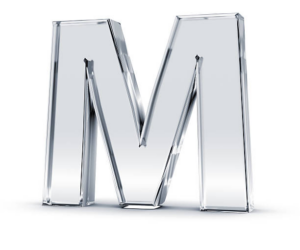
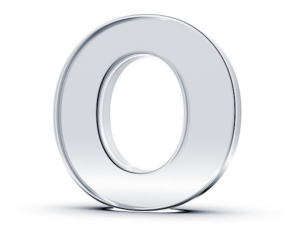

If you just remember MOM the entire time – market, offering and message, if you remember who your MOM is, then you’re going to do really well in the podcasting space and don’t lose sight of that.
I think that if you can literally name who your ideal client is, man or woman, age, race, background, whatever it is that you think would be helpful for you, if you can speak to that person. And you know where those people are. Your podcast again, if you have ten listeners, but they’re the right ten listeners, it could be a gold mine for you. Because imagine just filling a room with we look at it and we say, you only have 100 downloads for an episode, or whatever that number is.
The Nice Guys on Business, general business show for entrepreneurs, gets thousands of downloads per episode. The problem is that it’s too big. It’s too wide an audience, too wide a net. I can’t speak to one person specifically; except I know they’re entrepreneurs. If I can get it down to this person, this is how old they are, this is where they eat, this is where they hang out. If I can get ten or 20 of those people in my audience, then I know that if I could fill a room once a week with ten to 50 people, that’s great. They’re voluntarily coming to me. So, it’s a great idea to start a podcast just from that perspective alone.
That’s great advice from Doug! And it reminds me of a book by Seth Godin called “Tribe,” where he talks about the importance of having a hyperfocus on a group of customers who are likely to be very engaged with your goods or services rather than trying to reach the masses where your conversion rates will be lowest. You can’t be all things to all people.
It’s like being the jack of all trades, master of none. It makes it very challenging for you to figure out who your audience is if we have 20 or 30 people routinely that contribute their comments to the show, which we do, that’s great. But I would sooner take those 20 or 30 and just understand, okay, Who are you? What are you or what do you want? And just work with those 20 or 30 because they’re the ones that I’m engaged with. Those are the ones that are great.
Absolutely! And unfortunately, we have to start wrapping up. But first, Doug has one more resource he’d like to share.
The number one reason that people reach out to us oftentimes is they’re trying to figure out how to make money in podcasting. So, we have a free gift. It’s called Five Ways to Make Money Podcasting. And if you’re interested in that, just go to TurnkeyPodcast.com/gift.
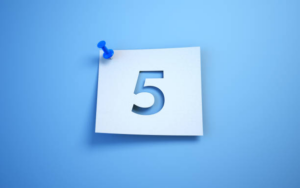
Another service that Doug’s podcast production company offers is a DIY course that teaches you their 7-step process for launching your podcast in 48 hours or less. That’s available at TurnkeyProduction.com/Services.
It feels good to have one of my mentors here on the show teaching you all too! But before he leaves, let’s thank Doug for coming onto the show!
My pleasure. I wish you a ton of success. I don’t even have to wish it to you. It’s happening anyway, so congratulations on all of your success and thanks for being a client and thanks for inviting me on your show. Love being here.
And we love having you here, Doug! Thanks so much again for all that you’ve done to help put our show on the map. In case you missed the links to the resources Doug mentioned, don’t worry. You can access everything at BusinessInfrastructure.TV. Again, that’s BusinessInfrastructure.TV.
Thank you for listening! If you enjoyed this episode, then please subscribe and leave a five-star rating and review.
Well, it’s time to leave the podcasting vault. But please, make sure you come back to hear the next remastered episode. It features someone who specializes in helping small businesses and large corporations alike become more agile to cut through the fluff and get stuff done!
Until then, remember to stay focused and be encouraged. This entrepreneurial journey is a marathon and not a sprint.
This podcast was written, produced, and narrated by me, Alicia Butler Pierre. Audio editing by Olanrewaju Adeyemo. Original score and sound design by Sabor! Music Enterprises.
This is the Business Infrastructure – Curing Back-Office Blues podcast.


